
Abdulah Sidran, often referred to by his hypocoristic nickname Avdo, was a Bosnian poet and screenwriter. He is considered to be one of the most influential writers in both Bosnia and Herzegovina and the former Yugoslavia.

Antun Branko Šimić was a Croatian expressionist poet, considered to be one of the most important poets of Croatian literature of the 20th century.
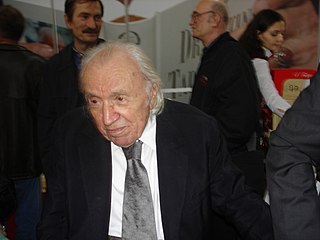
Dragutin Tadijanović was a Croatian poet, and in his native Croatia he is referred to as a "Bard."

Petar Preradović was a Croatian poet, writer, and military general. He was one of the most important Croatian poets of the 19th century Illyrian movement and the main representative of romanticism in Croatia.
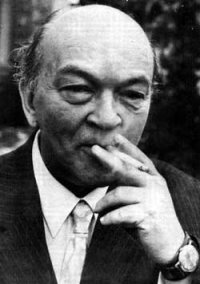
Enver Čolaković was a Bosnian novelist, poet and translator, best known for his 1944 novel The Legend of Ali-Pasha. During the later stages of World War II he served as a cultural attaché to the Independent State of Croatia embassy in Budapest. After the war he spent the rest of his life in Zagreb, where he published a number of literary translations from Hungarian and German.

Milovan Danojlić was a Serbian poet, essayist and literary critic best known for his children's poetry. Danojlić was a full member of the Serbian Academy of Science and Arts.

Matica hrvatska is the oldest independent, non-profit and non-governmental Croatian national institution. It was founded on February 2, 1842 by the Croatian Count Janko Drašković and other prominent members of the Illyrian movement during the Croatian National Revival (1835–1874). Its main goals are to promote Croatian national and cultural identity in the fields of art, science, spiritual creativity, economy and public life as well as to care for social development of Croatia.

The Novi Sad Agreement was a document composed by 25 Serbian, Croatian and Bosnian writers, linguists and intellectuals to build unity across the ethnic and linguistic divisions within Yugoslavia, and to create the Serbo-Croatian language standard to be used throughout the country.
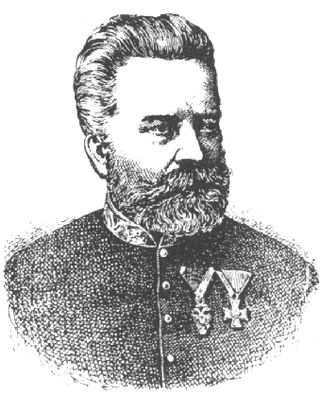
Ivan Trnski was a Croatian writer, translator and puzzle designer. Glorified by his contemporaries as a great poet and patriot, he is now considered a skillful poet and a prolific author of occasional verse.

Ljubo Wiesner was a Croatian poet. He was a follower of Antun Gustav Matoš's work.
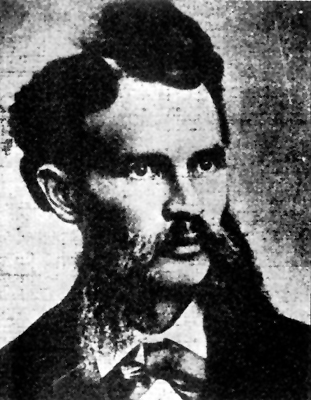
Hugo Badalić was a Croatian writer.
Ivan Slamnig was a Croatian poet, novelist, literary theorist and translator.
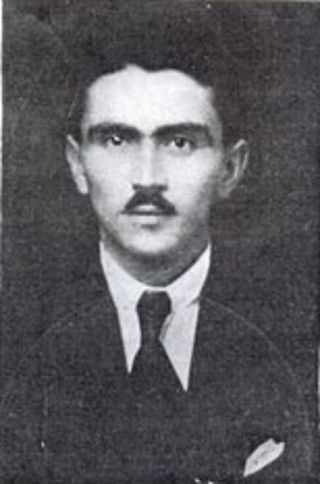
Dušan Vasiljev was a Serbian-Yugoslavian poet, novelist and playwright. He was one of the most significant expressionists in Serbian literature.

Vinko Nikolić was a Croatian writer, poet and journalist, and a high-ranking official in the Independent State of Croatia (NDH). After the downfall of NDH, he emigrated to Buenos Aires, Argentina, where he lived in exile until returning to Croatia, several years before his death.

Đuro Arnold was a Croatian writer and philosopher.
Anđelko Vuletić was a Yugoslav and later Croatian and Bosnian-Herzegovinian poet, novelist, drama writer, writer for children, literary critic and translator from French. He studied in his hometown of Trebinje and then at the Faculty of Philosophy (literature) in Belgrade. He was the winner of the Annual Awards of the Society of Writers of Bosnia and Herzegovina in 1965 for the collection of poems Sedam vječnih pitanja and of numerous other awards and accolades.
Srba Mitrović was a Serbian poet, translator and librarian.
Zdravko Krstanović was a Serbian poet, prose writer, critic, book editor, literature historian, playwright and journalist.
Nikola Šop was a Yugoslav poet. He was born in Jajce to a family of Bosnian Croats. He graduated in 1931 from the Faculty of Philosophy, University of Belgrade in comparative literature.
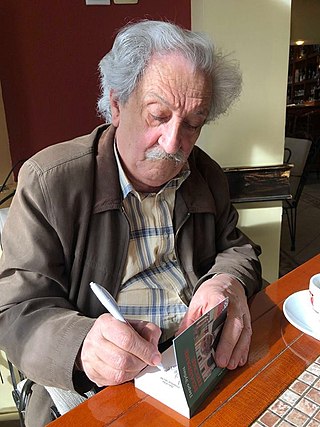
Pero Zubac is a Serbian and former Yugoslav author, poet, screenwriter, academic and journalist. He is a member of the Association of Journalists of Serbia and the Association of Writers of Serbia. In 2021 he was awarded the Order of Karađorđe's Star.















